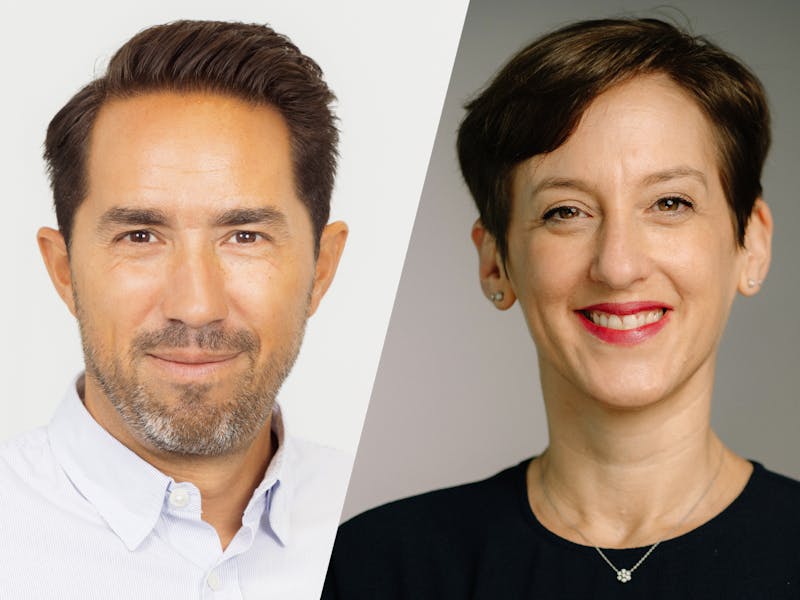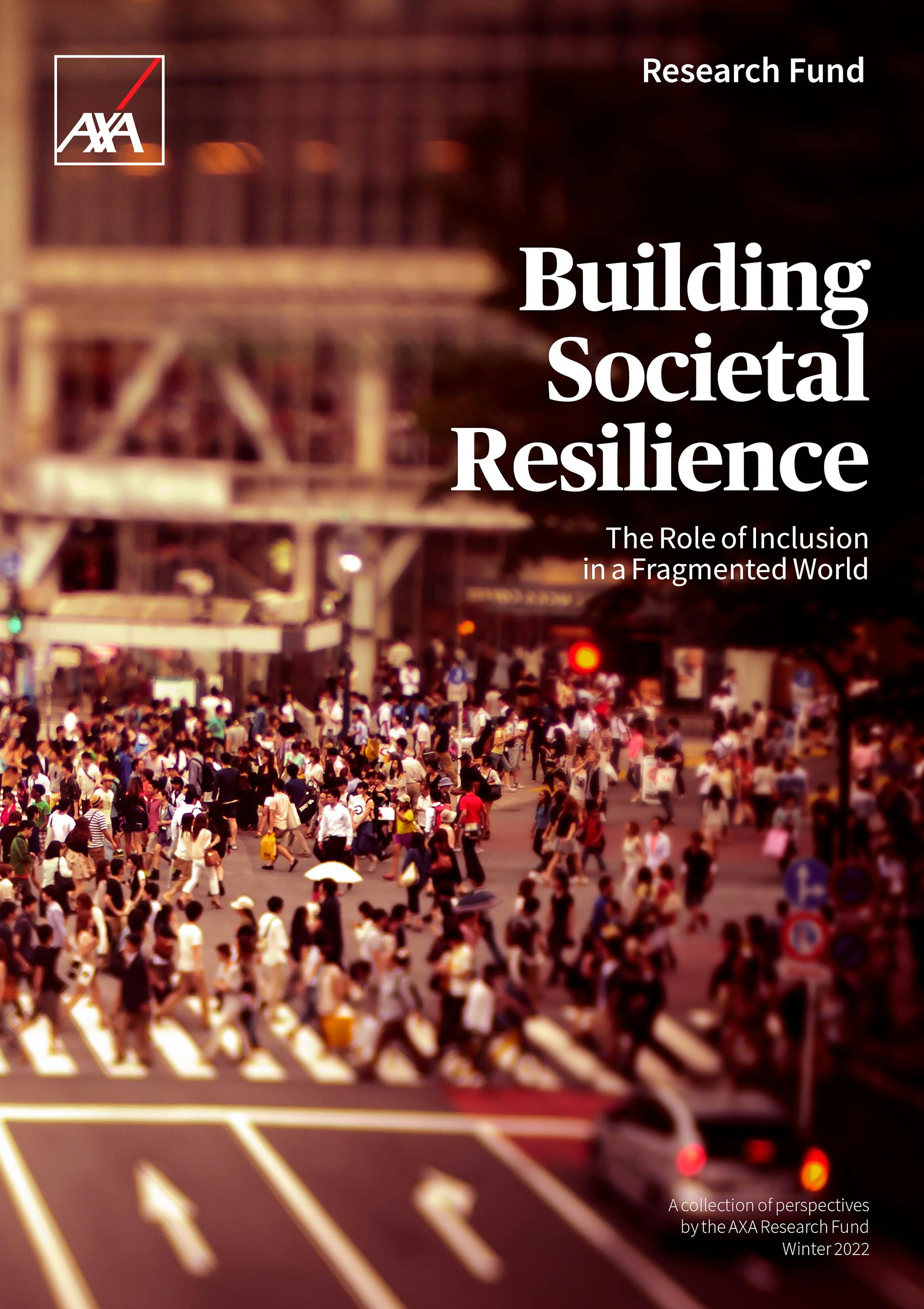

Olivier Desbiey, AXA ForesightKirsty Leivers, AXA Global Head of Culture, Inclusion and Diversity
October 19, 2022
The Future of Work: Flexibility, diversity, and purpose
The pandemic has without a doubt accelerated change in the world of work, introducing flexibility and technological innovation that contribute to workforce resilience in the face of crisis. But benefits have been unevenly distributed, particularly in the favor of white-collar workers. Relatedly, companies are facing a reckoning in the great resignation. What does the future of work look like, and how can we ensure inclusivity in the new model?
5 minutes
Building Societal Resilience: The role of inclusion in a fragmented world
This article is part of an AXA Research Fund publication
Read the publicationHow has the pandemic changed the world of work?
Kirsty Leivers (KL): It has rapidly accelerated change. The digital revolution had already introduced always-on patterns and some remote working, but change was painfully slow and battling legacy systems. The new remote working boom is a genuine gift and proves that we can adjust to new ways rapidly. We are also seeing that a hybrid workforce is more resilient to external shocks.
Olivier Desbiey (OD): I agree. The crisis has shown a new way of working and living, at least for the white-collar workforce. Those employees have been empowered through the digitization or hybridization of most of their tasks. Since the unprecedented lockdowns around much of the world in 2020, many workers have developed new expectations in terms of flexibility, recognition, and overall meaning of their work. This had been happening for a while – David Graeber, for example, famously coined the term bullshit jobs
in 2018, arguing that much work was pointless and harmful. I think the pandemic only accelerated the feeling that work should be meaningful and flexible. Perhaps the greatest evidence of this is the great resignation movement that resulted.
Are there downsides to the changes?
KL: First, with remote working, there is the risk of lack of balance, of not being able to switch off in an always-on environment. Second, there is social value derived from in-person work life through community building and the sense of belonging it creates, and we risk losing that value somehow in a remote world. It also presents challenges for team management in learning how to manage and build trust in hybrid teams. The most difficult thing will be figuring out the balance between flexibility and community and making sure the benefits are evenly spread across the workforce.
OD: Absolutely. Right now, the benefits accrue to the class of workers that can work remotely, which excludes many. The pandemic has sharpened debate about work inequality, and the lockdown highlighted the importance of those working in care, of delivery drivers, of teachers, of nurses, and more. That has stimulated debate around the social value of work and its recognition by society. Already some progress has been made on rights and status for some occupations.
Referring to the French sociologist Marie-Anne Dujarier, the pandemic highlights the three dimensions that define work. Up to the 1980s the consensus was to consider work as: an activity (painful), a useful production (creating something useful to society), and a related employment (being able to live from this work). Today, these dimensions no longer fit together. We have many examples of useless or even harmful activities (especially from an environmental perspective), high incomes not necessarily correlated to an activity, and finally the working poor. The crisis exacerbated these inequalities and is redefining the social value of work.
KL: Yes, and if this inequality is entrenched, it can be a huge threat to societal resilience.
OD: Interestingly, we are seeing insurance companies responding to this inequality by designing policies for workers not traditionally covered by insurance, such as platform gig workers.
So we see quite a break from the previous world of work in the future?
KL: Change only happens quickly when something is broken, and recent events have broken the way that we worked. The structure and control of a workplace is a difficult thing to replace, and we’re putting a lot of pressure on individuals to reconstruct and create the boundaries and structure of the old
way of working – it’s a whole workplace redefinition, and you don’t do that in a week. That takes years to get right. We certainly will never go back to exactly where we were before. So there will be a change, only time will tell just how big it will be.
OD: Going beyond the way we work and the way certain types of work are valued, I think the whole nature of the company is under question. Businesses need to strike a balance between purpose and profit. They must be able to justify their role in society beyond their business model and aim to reduce harmful ecological and social impacts, including on employees, even if that impacts profits. In the past, companies could claim they were socially responsible just by having a mission statement. Now, employees and customers alike are demanding clear action and transparency.
KL: I’ll also add that the pandemic opened the door to more awareness about diversity, about wellbeing, and about mental health, so this is something I think we will see more emphasis on in the future.
Olivier, going back to purpose over profit, what about new business models? How are they shaping the future of work?
OD: With new business models, there is some tension there. The increasing business of platforms illustrates how tech can sometimes compete with rather than benefit the workforce. For example, a platform delivery company can use their technology as primarily an organizing principle for innovating and improving service, rather than a tool for their workers. Workers are entirely integrated into the platform, and as they perform their work, they also generate data on delivery routes and patterns. This feeds an algorithm, with the purpose of eventually replacing the drivers with autonomous vehicles. Ironically, generating data to eliminate their job is part of their job. However, the excesses of this kind of model have also given birth to the development of platforms based more on the social role and well-being of workers. To stay with the example of delivery, new forms of organization relying on cooperative mechanisms[1] are emerging to grapple with the purpose versus profit trade-off.
Kirsty, you mentioned an increased emphasis on diversity. What kind of diversity are we talking about?
KL: Diversity is crucial to workplace and societal resilience. Since diversity can be actively introduced to a workplace, it’s an important path to permeating diversity into wider society. Right now when we talk about diversity, we use simplistic models or broad categories to start, in order to start the conversation. As we progress with those changes we will then move closer to what I consider to be true diversity.
With the nature of work changing, we need to be open to as much talent as possible. Recruiting and retaining those previously excluded is a route to that, as well as to wider societal resilience. How workplace diversity is understood is an evolving concept: skills or background diversity, for example. A workplace may be ethnically diverse, but still draw on only one type of socioeconomic or educational background. It’s more difficult to achieve true diversity in skills and thought, which is what actually makes a difference to the way the organization thinks and functions. There is still much work to be done on that front.
Are you optimistic about the future of work?
KL: There are lots of interesting things going on, and I consider the progress and the change in a very positive way. There will be challenges in getting the balance right, getting past some of the tensions in workplace relationships as flexibility becomes more of the norm. But we’re now having these conversations explicitly in a way that we weren’t before, and at the end of the day that helps everyone and fosters greater diversity. It is necessary change, and in the right direction.
OD: I am optimistic in the sense that we have always been able to adapt our ways of working, particularly in relation to technological and industrial revolutions. What is at stake today is perhaps more profound and involves integrating social and sustainable development expectations. The younger generations seem to already have this awareness. The challenge is more broadly for society to have a well-prepared, trained and therefore more resilient workforce. There is no doubt that companies – especially the largest ones who have made a social mission the cornerstone of their model – have a role to play.




